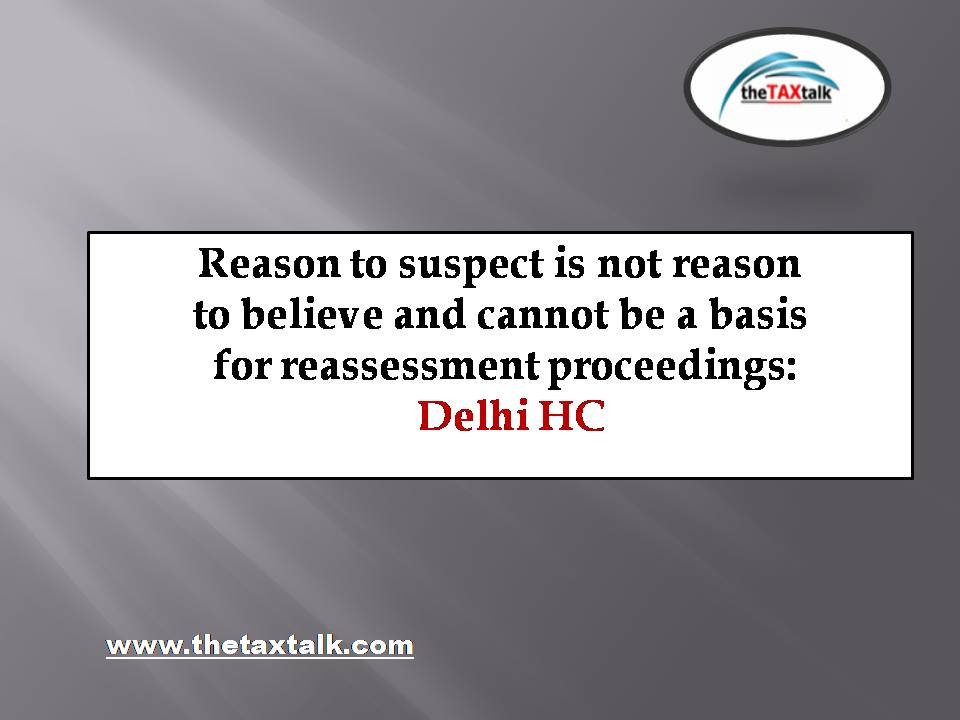![]()
Reason to suspect is not reason to believe and cannot be a basis for reassessment proceedings: Delhi HC
Saraswati Petrochem Pvt Ltd (WP (C) 10802/2018)
Facts:
1. The petitioner/assessee had received cumulative amounts of Rs. 1,95,00,000/- and 15,20,000/- in the two bank accounts maintained with HDFC Bank from Para Impex Chem.
2. AO made a comparison of the amounts shown against share capital, security premium, share application money, and long-term unsecured loans for AY 2010-11 and 2011-12 and concluded that a cumulative increase in the source of funds had taken place to the extent of Rs. 61,87,061/-.
3. Amongst others, the petitioner/assessee was asked to explain and provide details of financial transactions and as the petitioner/assessee did not respond to the communication dated 20.03.2018, the AO trigger reassessment proceedings against the petitioner/assessee by issuing the notice U/S 148 of the Income Tax Act.
4. The petitioner/assessee maintained that the information based on which the AO formed ‘reason to believe’ had not been furnished by him to the petitioner/assessee. The AO needed to independently verify the information and the material that had reached him. The sine qua non for triggering the assessment proceedings is not a „reason to suspect‟ but a „reason to believe‟ that income chargeable to tax has escaped assessment.
5. The petitioner further stated that AO realized that the information received by him from ITO (Nahan) via letter dated 12.03.2018 concerned the preceding period and so he attempted to commence reassessment proceedings under Section 147/148 of the Act by simply comparing the „source of funds‟ reflected under various heads in the balance sheets for the preceding AY and the AY in issue
Hon Delhi HC held as below:
1. The first and foremost principle of law, to which the AO must be wedded, is the obligation cast on him to furnish material and information that helped him to form a belief that income, otherwise chargeable to tax, had escaped assessment.
2. The petitioner/assessee was entitled to receive copies or relevant extracts from the letter dated 12.03.2018 and the intimation of the ADIT (Inv)/Unit-4(2).
3. The phraseology used by the AO reveals that he suspected that income chargeable to tax had escaped assessment. Therefore, according to us, this approach of the AO breached the other well established principle of law that suspicion and conjecture cannot form the basis for triggering reassessment proceedings qua an assessee.
4. The AO did not carry forward the enquiry process once he had received communication from ITO (Nahan). The AO did not have the tangible material on record that could have persuaded him to form a belief that income, otherwise chargeable to tax, had escaped assessment.
5. We are inclined to quash the impugned notice issued to the petitioner/assessee under Section 148.

